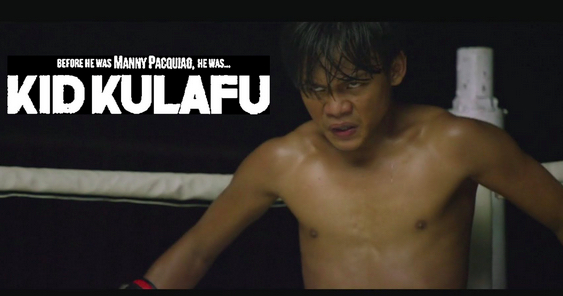By Mico Orda
When it comes to boxing, Manny Pacquiao is certainly the name on everyone’s lips. The eight-division champion, congressman, basketball coach/player, singer, sometime actor and seems to be a jack of all trades. And for this GenSan native, every success has its own humble beginnings.
Kid Kulafu focuses on a young Pacquiao, who with his family flees from the conflict between the New People’s Army (NPA) and the Philippine army, and settles into a hardscrabble life in General Santos City. Through the encouragement of his Tito Sardo, the young fighter gets drawn into boxing, with his uncle at his side as his first trainer.
Leads Buboy Villar and Alessandra De Rossi were phenomenal in every bit, and their mother and son dynamics elevated the film. Their chemistry was magnetic and mesmerizing to watch on screen. Buboy Villar managed to bring some humanity to the title character, and his nuances also added layers. Alessandra De Rossi’s take on Dionisia Pacquiao was quite surprising: she brought the best of both strength and vulnerability without overacting and allowed her emotions to manifest the wholeness, and that comedic timing added a nice touch to her character.
The Pacquiao brand is pushed through the course of the film, with a huge chunk of the narrative was spent on segments of Manny training and fighting, rather than tell genuinely the story of Kid Kulafu. Emotional moments in the latter part of the film tried to convey the humanity the second act lacked, unfortunately these come across as a lot of forced emotional scenes that seemed cliché. A proper build up might have made the final scenes more interesting and credible.
As for the film’s mood, it was unclear on what direction the filmmakers were going: the movie starts with a war scene, then poverty porn and suddenly, an art house-esque dream sequence came, depicting Pacquiao walking in the falls–lacking the cohesion that would have served to tell the tale of Kid Kulafu.
The relationship between Pacquiao and his trainers could have been better explored, especially considering the big role they played in his iconic rise. Ending the film with Pacquiao’s subsequent victories appeared to be phoned in; it could’ve been something more meaningful, the used footage of his victories felt like the film was merely celebrating his triumphs to inspire and uplift the masses.
Sometimes, telling a tale simply can stand out, as a life itself plays out before your eyes can be a rewarding cinematic experience. Kid Kulafu may have missed the mark in some ways, but was able to convey a success story glorifying the People’s Champion. Good camera work makes watching this flick a mostly pleasant two-hour experience. Counting the pros and cons, the film isn’t entirely a disappointment, but a missed opportunity of utilizing the title and its legend.
Editing by Anna Gamboa
Credits










